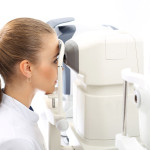Why you should know your blood pressure numbers
 It’s estimated that more than 100 million Americans have high blood pressure. Surprised? High blood pressure can damage your health in many different ways. It can affect your heart, brain and eyes. And it’s the second leading cause of kidney disease in the United States.
It’s estimated that more than 100 million Americans have high blood pressure. Surprised? High blood pressure can damage your health in many different ways. It can affect your heart, brain and eyes. And it’s the second leading cause of kidney disease in the United States.
Unfortunately, many people with high blood pressure do not exhibit any symptoms and don’t even know they have it. That’s why it’s so important to make sure that you are seeing your doctor regularly and getting an examination that includes checking your blood pressure.
If you do have high blood pressure, be sure to work with your physician to address it. The most important aspect of keeping your blood pressure in check is taking blood pressure medicine as prescribed and adopting a healthy lifestyle or incorporating more healthy habits into your day. Exercise is important, and diets low in fat and cholesterol and high in protein and fiber are usually suggested for patients with high blood pressure. Your daily habits, combined with medication, can help lower your blood pressure and help you live a longer, healthier life.
You’ll also want to watch how much sodium you consume because there’s a link between sodium and high blood pressure. The American Heart Association recommends no more than 2,300 milligrams of sodium a day, with an ideal limit of no more than 1,500 mg per day for most adults, especially for those with high blood pressure. Even cutting sodium consumption back by 1,000 mg a day can substantially improve blood pressure and heart health.
If you’re a smoker, now is a great time to quit. Another leading cause of high blood pressure is stress. While it is impossible to completely alleviate all stress in your life, you can take steps to better manage it.
What blood pressure numbers should you aim for? Here’s a useful guide to understanding your blood pressure from the American Heart Association. Generally, blood pressure numbers of less than 120/80 mm Hg are considered within the normal range.
It is essential to know your blood pressure numbers as they serve as an indicator of your overall health. Monitoring your blood pressure regularly can assist in identifying potential health risks and can enable you to take proactive steps toward maintaining optimal cardiovascular health. Additionally, knowing your numbers empowers you to make informed decisions regarding lifestyle choices, such as diet modifications and exercise routines, that impact hypertension levels. Overall, being aware of your blood pressure readings allows you to take control of your well-being proactively and prioritize prevention over cure.








